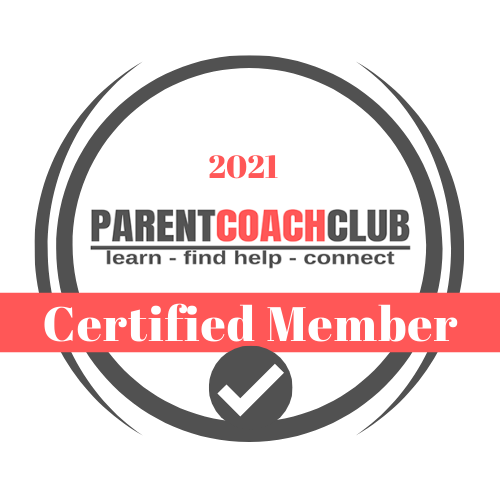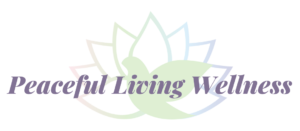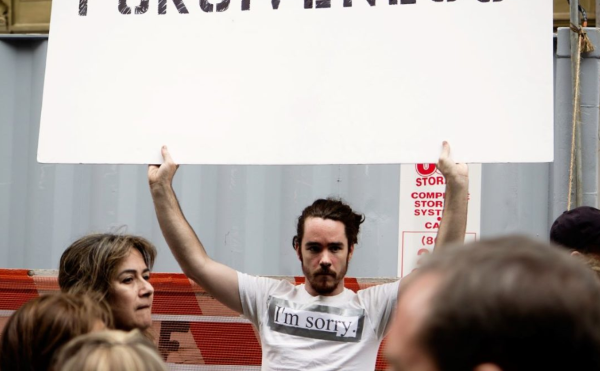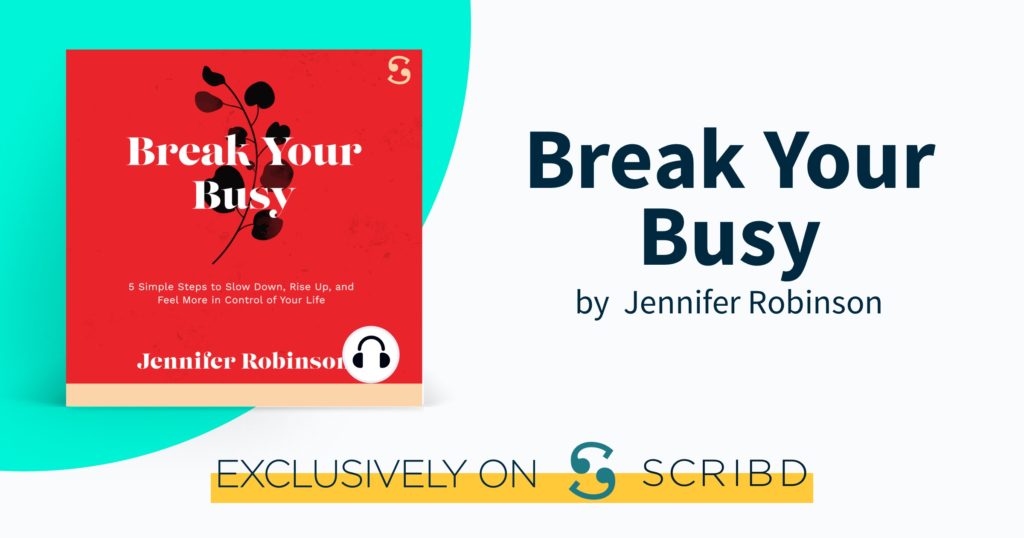About a decade ago, when my marriage was on the rocks, a kind woman said to me, “I know it’s hard, but if you find forgiveness in your heart you will feel much better.” My immediate response was, “I’m not going to forgive him! He hasn’t said that he’s sorry!”
Spoiler Allert: We’re still married and going strong!
You see, the woman was correct. Finding forgiveness allowed me to be released from the stifling emotions of resentment and anger. Finding forgiveness helped me to realize that I can’t force my husband into saying or doing anything – particularly not apologizing. What I found is that when I gave up my anger, my resentment and my need to control his emotions and communication I allowed healing for both of us to begin.
And yes, we both ended-up apologizing. More importantly, we still do when necessary!
Forgiveness gives the forgiver freedom from negative, destructive thinking and emotions. Forgiveness gives the forgiven the freedom to apologize without facing those negative, destructive emotions from the person to whom they are apologizing.
Think about it this way: Going back to the Power of Apology blog, it is very hard for some people to apologize because of the shame and guilt they feel. It becomes even harder, maybe even insurmountable, to apologize to someone who is seething with anger and resentment.
That combination equals a stalemate. The aggrieved person does not get the apology they want because the person from whom they want it is too intimidated to apologize.
HOW TO FIND FORGIVENESS
It is very hard to find forgiveness in your heart when you have been deeply hurt. And honestly, the process is going to be unique for each person. But, here are some ways-of-thinking that can help:
· Remember that the forgiveness is a freedom for you. You get to lead your life without being weighed down by anger and resentment.
· If possible, try to find empathy or at least sympathy for the person who hurt you. People are human and make mistakes.
· Forgiveness allows the channels of communication to open. And this may lead to your getting the apology you want and deserve.
· Take a look at your side of the street. Is there something you may also need to apologize and be forgiven for?
Here are some practical tools to help get you to forgiveness:
· Write a letter to the person you need to forgive. Put all of your resentment and anger in the letter. BUT DON’T SEND IT! In fact, I believe it is important to destroy the letter. Once you have put all of those feelings on paper they are out of your system. I like to shred, or safely burn, these letters so that all of those negative emotions and words are gone.
· Write a gratitude list. I continue to do this in my life and for my relationships. When I think about and list the things for which I am grateful – and yes, I do mean when it comes to the person I need to forgive – it helps me to refocus my brain into positivity and this helps me to find my way to forgiveness.
· If at all possible, and only if it will not put you in harms way, talk to the person you are trying to forgive. Tell them that you are in a process of getting to forgiveness if you are not there yet. Allow them to know that your heart is in the right place and you are trying to move forward OR that you HAVE moved forward. This again allows the channels of communication to open. And if you use mindful communication it can lead to a mutually healing outcome.

LET GO OF THE OUTCOME
Remember, forgiveness is for your own emotional freedom. You may not get the outcome – the apology – you desire. What is important is that you are letting go of the anger and resentment. You are allowing yourself the freedom to move forward into living a life of positivity instead of one fettered by negative emotions.
Another important thing to remember, especially if you are attempting to talk to the person who hurt you, is that he or she may not feel as though they have done anything wrong. If your desired outcome is an apology, or even just a recognition of the fact that you were hurt, in this situation you will not get either. AND THAT IS SOMETHING YOU CANNOT CONTROL.
This can be something that is extremely difficult to accept. I have been going through this with my father for most of my life. He says and does hurtful things. He has for as long as I can remember. Unfortunately, he does not see that his words or his tone of voice are problematic. He’s one of those people who blames the recipient of his barbs for being too sensitive.
I will never, ever hear an apology or even an acceptance of causing hurt from my father. I have accepted this. I no longer go through my life feeling insecure, angry or resentful about it.
And that is the key: Moving forward with your life in a happy, positive way, irrespective of what the other person accepts or says to you. In other words, that person may never take personal responsibility for hurting you, nor will you receive an apology. But, you will find emotional freedom in letting go of wanting that acceptance and apology.

FORGIVING IS NOT FORGETTING
This is a very important point. Forgiveness is about letting go of the anger and resentment. But, it is not always about forgetting that the hurt happened in the first place.
In Western culture we have a saying, “to forgive and forget.” Some people attribute this to Biblical scripture, but my research does not find the Bible to be saying anything more than “forgive.” There does not seem to be a “forget” part in the Judeo-Christian scriptural sense.
Some people point to Miguel De Cervantes’ Don Quixote who says, “Let us forget and forgive injuries.” Others point to Shakespeare in King Lear in which the Bard writes, “Pray you now, forget and forgive.” (Thank you to Michael Bast on Quora.com).
It is sound advice when it comes to small grievances. Should a friend accidentally hurt your feelings with a thoughtless comment, then yes, you can forgive and forget. However, if that same friend repeatedly hurts your feelings with thoughtless comments, it is not advisable to keep forgetting because she may never stop.
Likewise, it is not advisable to forget larger harms. If you are suffering from verbal, emotional or physical abuse it is okay to remember that they happened so that you can avoid the abuse in the future. Even in these egregious situations you can find freedom in forgiveness. But, you do not need to forget they happened.
BOUNDARIES AND FORGIVENESS
Just as you do not need to forget that hurt happened in order to forgive, you also do not need to become a doormat to the person you are forgiving. Forgiveness does not mean putting yourself out to the continued hurt by the other person.
I am going to talk more in depth about boundaries next week in the Beauty of Boundaries blog, the last of this series on Mindful Communication.
But, for now, it is important to know that forgiveness and boundaries can absolutely go hand-in-hand. In fact, I even am going to go so far as to say they MUST go hand-in-hand.
For example, when communication between my husband and myself broke down all of those years ago, with the help of a skilled couples counselor we set boundaries for communication. Staying within these boundaries has helped us communicate in a safe-space since that time.
In the situation with my father, I set boundaries that he bulldozes over. Unfortunately that means that I have to set a personal boundary of having limited communication with him and ending conversations when they turn to the hurtful.
Let’s go back to the situation with the thoughtless friend. I have found it helpful to gently point out to friends who think it’s funny to tease that sometimes it goes too far. For a more in-depth discussion on stressful friends check out my blog Finding Cherries in a World That Can Seem Like the Pits: Those Stressful Friends.
Is there anyone in your life – past or present – who you need to forgive?
What are the mental/ emotional roadblocks standing in your way of giving yourself the Freedom of Forgiveness?
As always, I welcome your comments and questions!
And I am grateful for your follows and shares!
With Love,
Jen

JEN ROBINSON
Jen Robinson is the creative force behind the wellness brand Peaceful Living Wellness which is dedicated to providing a wide-variety of high-quality wellness information. Jen is also the creator of the Peaceful Living Wellness life coaching division, and offers workshops, individual and group coaching as well as retreats where she guides women in using Mindfulness and Mindset to build their inner strength on a foundation of inner peace. Jen also is the co-creator of the business coaching brand CEO Mindset that guides entrepreneurs in building their businesses without burning out.
The latest addition to her repertoire is that she recently signed-on as the Wellness Director for the business development company Wealthy Women Entrepreneurs . She is very excited to be leading this group of dynamic women entrepreneurs into success in their businesses and lives!
The most important part of Jen’s life are her two very active teenagers, AJ & Layna!
Jen’s Mindfulness and Mindset techniques inform her business, her parenting and her life!

FACEBOOK
FACEBOOK GROUP
INSTAGRAM
PINTEREST



